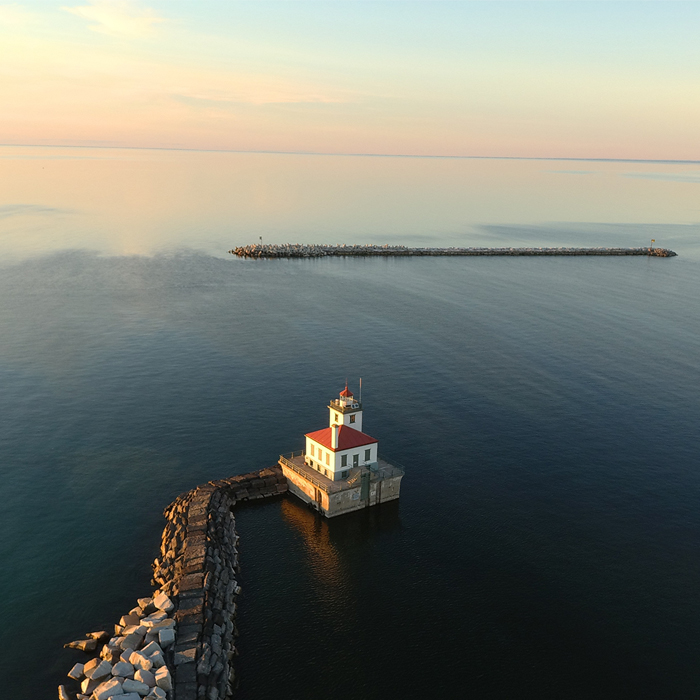Global Environmental Health Chat

Human Health Impacts of Microplastics in the Great Lakes
August 15, 2025
In this episode we will hear from Katrina Korfmacher, Ph.D., and Christy Tyler, Ph.D., co-directors of the Lake Ontario Microplastics Center (LOMP) at the University of Rochester, jointly funded by NIEHS and the National Science Foundation. They will discuss the efforts underway at the center to better understand and respond to the human health impacts of microplastics in Lake Ontario and the entire Great Lakes region.
Experts: Katrina Smith Korfmacher, Ph.D., University of Rochester and Christy Tyler, Ph.D., Rochester Institute of Technology
The Great Lakes ecosystem contains 84% of the available freshwater in North America and 20% of the available freshwater in the world. The region is home to 3,500 plant and animal species, and supports fisheries, industry, tourism, and recreation in the United States. However, microplastics – tiny, less than 5 mm-sized particles of plastic – have been found in all lake habitats, throughout the food chain, and in tap water.
In this episode we will hear from Katrina Korfmacher, Ph.D., and Christy Tyler, Ph.D., co-directors of the Lake Ontario Microplastics Center (LOMP) at the University of Rochester, jointly funded by NIEHS and the National Science Foundation. They will discuss the efforts underway at the center to better understand and respond to the human health impacts of microplastics in Lake Ontario and the entire Great Lakes region.

Katrina Smith Korfmacher, Ph.D., is a professor of environmental medicine and director of community engagement for the Environmental Health Sciences Center and the Institute for Human Health and the Environment at the University of Rochester. She holds a M.S. in Water Quality Management and Ph.D. in Environmental Studies from Duke University’s Nicholas School of the Environment. As a policy scientist, her research focuses on the roles of science and communities in decision-making. Korfmacher has worked with community partnerships and national groups related to childhood lead poisoning prevention, healthy homes, air quality, built environment, fracking, water pollution, and other issues for over 20 years. She has served on numerous local and state advisory boards, including the National Advisory Environmental Health Sciences Council.

Christy Tyler, Ph.D., is a professor in the Thomas H. Gosnell School of Life Sciences and director of the graduate program in environmental science at Rochester Institute of Technology. She holds an M.S. and Ph.D. in environmental sciences from the University of Virginia. Tyler’s research interests include aquatic ecology and biogeochemistry, or the study of the mutual interactions between biology and the chemistry of earth. Tyler’s work focuses primarily on ecosystem restoration and emerging contaminants, especially plastic pollution.


